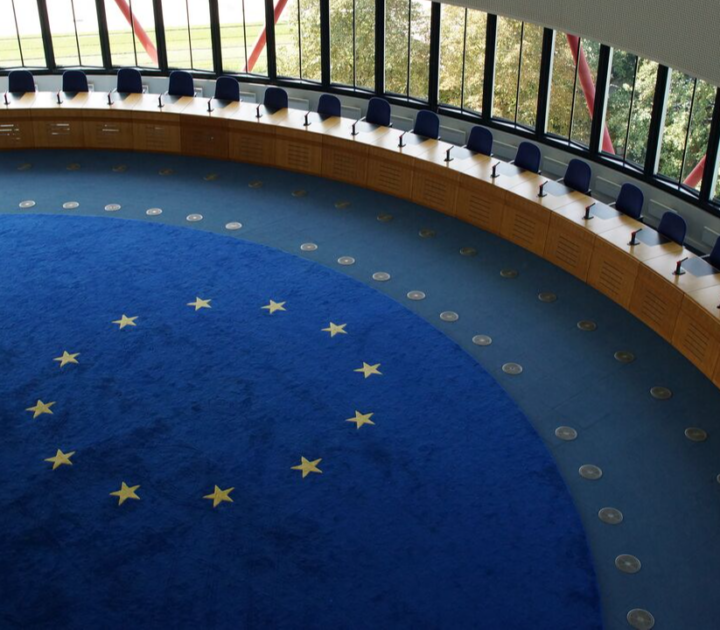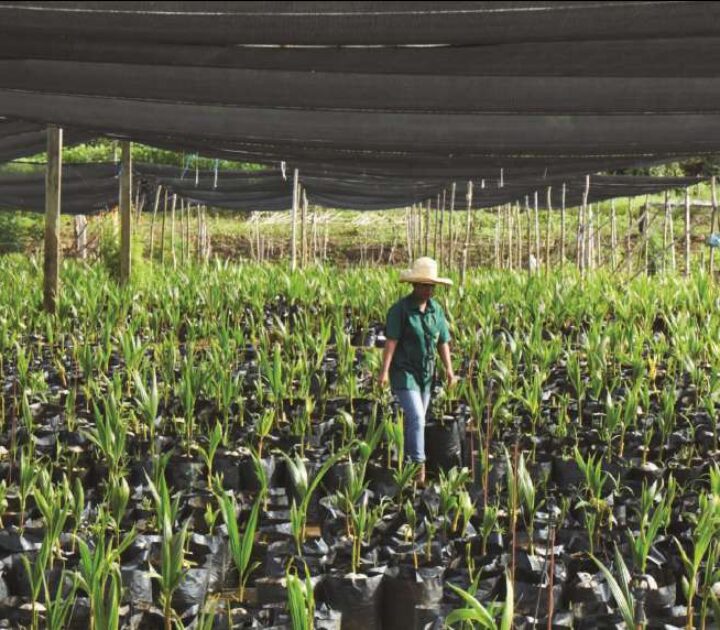
What's stopping your sustainability schemes?
Lack of interest from investors is a key factor. So too is inconsistent customer demand. But some of the biggest barriers facing companies that are trying to roll out sustainability strategies come not from outside, but from within their own business.
These internal obstacles take the form of knowledge gaps, fixed and short-term mindsets, and an absence of incentives for managers to change behaviors.
The membership-driven Corporate Sustainability Management (CSM) Platform at IMD has been tracking this intriguing and somewhat surprising finding for some years since carrying out a major cross-industry research project that identified internal obstacles as a major “sticking point” to implementing business cases for sustainability within corporate organizations.
After all, a firm’s primary market stakeholders are its investors and customers, so if the business case for sustainability is weak, it seems more logical that the main cause would be lack of impetus from these groups. After all, companies have far more control over their own internal environments than they do over the outside world. If some of the major barriers are internal, just why are firms tripping over their own feet when it comes to getting this right?
The starting point
Nowadays, social and environmental reports abound. Corporate social responsibility statements are becoming ten a penny. Indeed, there is so much public discussion and media interest in sustainability issues that one could be forgiven for believing that companies are bowing to the threat of bad publicity and are fully focusing on cleaning up their act. After all, new internal functions dedicated to sustainability have sprung up in all sorts of organizations. And by now most global companies have a strategy (of sorts) around their most business-relevant sustainability issues.
However, strategic alignment is the challenge. The real truth is that companies still struggle to move beyond compliance. They may well develop a strategy to do so, but the objective-setting and monitoring that should support it remain overly optional or, at best, are so unambitious as to have minimal impact.
Consummate care is taken by global firms to demonstrate that they are taking sustainability issues seriously, but they are just as careful to ensure that they do not rock the boat too much. After all, we live in a highly competitive economic environment and are amidst ongoing financial chaos.
Internal barriers
Look deeper into corporations, however, and an interesting perspective emerges. Specialists in areas such as sustainable sourcing, environmental management, and even health & safety report that there can be substantial knowledge gaps within global firms. Even the most competent, highly-educated managers do not always recognize the innovation opportunities, efficiency benefits, and risk reduction potential of addressing sustainability issues more strategically. This relative ignorance can lead people to prevent others from building and rolling out project- and unit-specific business cases.
On top of this, dominant functions such as finance, sales, and marketing are often locked into incentive schemes that reward and thus perpetuate short-term oriented behaviors. These behaviors can be at odds with the achievement of more sustainable long-term objectives. A good example is the dragging of heels around integrating health obesity issues into innovation schemes in the food and beverage industry. Incentive systems in global firms are as yet too rarely modified to encompass the longer-term goals of a sustainability strategy.
Naturally, the short-term mindset of managers is highly influenced by our shareholder-driven business model. It is thus difficult to get the managerial mindset to think more long term. One striking decision that runs counter to this trend was taken by Paul Polman, the CEO of Unilever, who in 2011 stopped delivering quarterly results to the market. He wants stakeholders, including investors, to take a long-term view of success rather than only ever looking ahead to the next quarter’s figures. A bold move and it will be interesting to observe the impact at firm level as well as externally.
Overcoming internal barriers
For the last two years, the CSM Platform at IMD has run a Master Class Workshop focused on embedding sustainable sourcing strategies in collaboration with the Sustainable Agriculture Initiative Platform (SAI Platform). SAI Platform is a consortium of major food and beverage companies focused on anchoring standards and norms in sourcing agricultural commodities. The Master Class is an opportunity for managers involved in sourcing to share challenges, solutions and experiences with peers, close existing knowledge gaps through open innovation knowledge brokering sessions, and learn how to instigate change within their organizations by creating networks and working with and through them.
The CSM-SAI Platform workshops are also innovation incubators allowing us to learn about the barriers to embedding sustainability strategies and ways of overcoming them, taking a very specific management challenge as an example. During the workshops, however, it is always apparent that the only way to truly embed sustainability strategies in an organization is by going “the full Monty:” that is, not holding anything back.
This means recruiting managers with the right mindset to start with, rebooting internal value systems, and rewarding managers for changing behaviors and achieving longer-term sustainability objectives. It also means having executive development policies that ensure managers are kept abreast of rapidly-evolving changes in the external environment that are leading to both business risks and opportunities. It means empowering managers to effect bottom-up changes in organizations. And it means creating networks of sustainability champions in strategic business units for whom sustainability is not just a nice extra but a business imperative. Few companies if any have as yet got past the winning post.
Dr Aileen Ionescu-Somers is the director of IMD’s Corporate Sustainability Management Platform. Before joining IMD, Dr Ionescu-Somers headed an international projects unit at WWF, the conservation organization.
Research Information & Knowledge Hub for additional information on IMD publications

in I by IMD 10 April 2024

IMD World Competitiveness Center Report, 8 April 2024

in I by IMD 20 March 2024


in I by IMD Magazine March 2024, no. 13, p. 64-72

in Small Business Economics 14 March 2024, ePub before print, https://doi.org/10.1007/s11187-024-00907-1
Research Information & Knowledge Hub for additional information on IMD publications
Research Information & Knowledge Hub for additional information on IMD publications
Research Information & Knowledge Hub for additional information on IMD publications
in I by IMD 10 April 2024
Research Information & Knowledge Hub for additional information on IMD publications
IMD World Competitiveness Center Report, 8 April 2024
Research Information & Knowledge Hub for additional information on IMD publications
Research Information & Knowledge Hub for additional information on IMD publications
in I by IMD 20 March 2024
Research Information & Knowledge Hub for additional information on IMD publications
Research Information & Knowledge Hub for additional information on IMD publications
Case reference: IMD-7-2282 ©2022
in I by IMD Magazine March 2024, no. 13, p. 64-72
Research Information & Knowledge Hub for additional information on IMD publications
in Small Business Economics 14 March 2024, ePub before print, https://doi.org/10.1007/s11187-024-00907-1
Research Information & Knowledge Hub for additional information on IMD publications